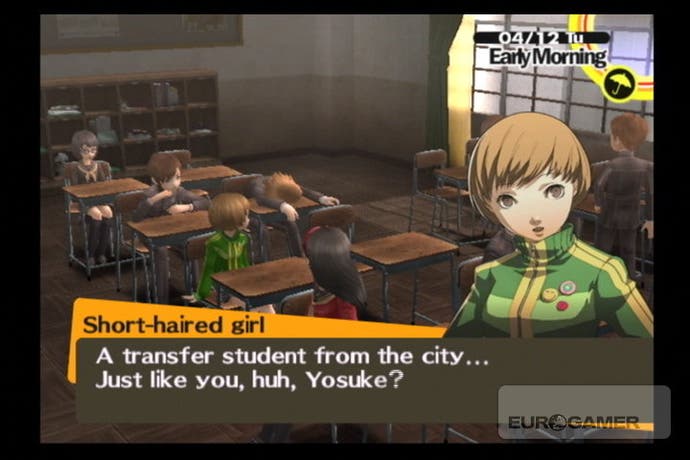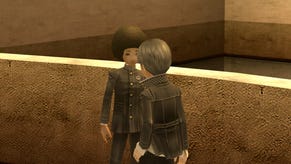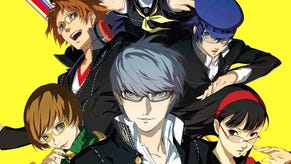Shin Megami Tensei: Persona 4
Old school.
Playing out through morning lessons, lunchtime corridor gatherings, after-school activities and evenings spent at home watching TV, Persona 4's friendship system is complex but faintly cold-hearted. This is either a critique of social mobility or a product of it, with each connection you forge serving primarily to level up your Social Links, allowing you to unlock strategic battle advantages amongst team-mates, or craft increasingly powerful varieties of Persona.
The game can be brilliantly mercenary; each time a potential friend casually suggests a trip to the mall, it results in the chillingly self-serving option of examining the levelling advantages you'll get from accepting their offer. Persona wants you to be popular, but it asks that you're essentially industrious with your free time. This is no trivial world of mini-games and other distractions: socialising is simply another tool in service of the game's larger RPG mission - another part of your arsenal, requiring you to callously exploit the neediness of your chums to get the most out of them.
And yet, although it reduces family and friends to a ritual, it's not an empty one. This may be a clockwork universe, but it's filled with unexpectedly personal discoveries and real warmth. Even if you're just hanging out with Chie so that, one day, she'll take a monster's boot to the head so that you don't have to, you'll still end up exploring the surprisingly delicate inner lives of the characters, probing their neuroses and back stories. Despite their Playmobil appearances and disconcerting emoticon outpourings, you'll finish the game feeling that you know them a little better, and Persona's designers have an undeniably excellent eye for the tiny little rites that make up every friendship, from the ceremonial exchanging of phone-numbers to the awkward way new acquaintances grope towards an understanding of the hierarchy of their relationship.
And inevitably, when Persona overburdens you with social responsibilities, piling up the jobs, local festivals, and basketball clubs too thickly, the choices you make are often contrary to your tactical best interests. I spent far too much time hanging out with Yumi, the enigmatic fox from drama club with a lame Sun Arcana boost, than I should have as, given the way I was playing, she wasn't really making me that much more effective in the serious business of hitting baddies in the face every night.

On top of the social elements and dungeon-crawling lies the familiar clutter of shops to visit, items to sell and weapons to collect: everything necessary to keeps a packed, if focused, RPG ticking over. As a sequel to Persona 3, this is ultimately cautious; the handful of changes it's made may be predictable, but they're no less essential because of that, and the result is a game that remains comfortingly familiar yet distinctly improved.
There are still problems - you'll have to grind more than you'd like to beat a lot of the bosses, and one dungeon, beneath the surface, is very similar to the next - but, despite the limitations to your freedom, what emerges in a carefully balanced game, revelling in a juicy contrast between its own day and night cycles, its spectral Midnight Channel and detailed domestic setting, and the child's life when shoved up against the grotty world of adults.
Powerful rather than perfect, then, Persona 4's a status ailment rather than a killing blow - it's not going to bowl you over with one strike, but it will quietly gnaw away at you until you succumb.











